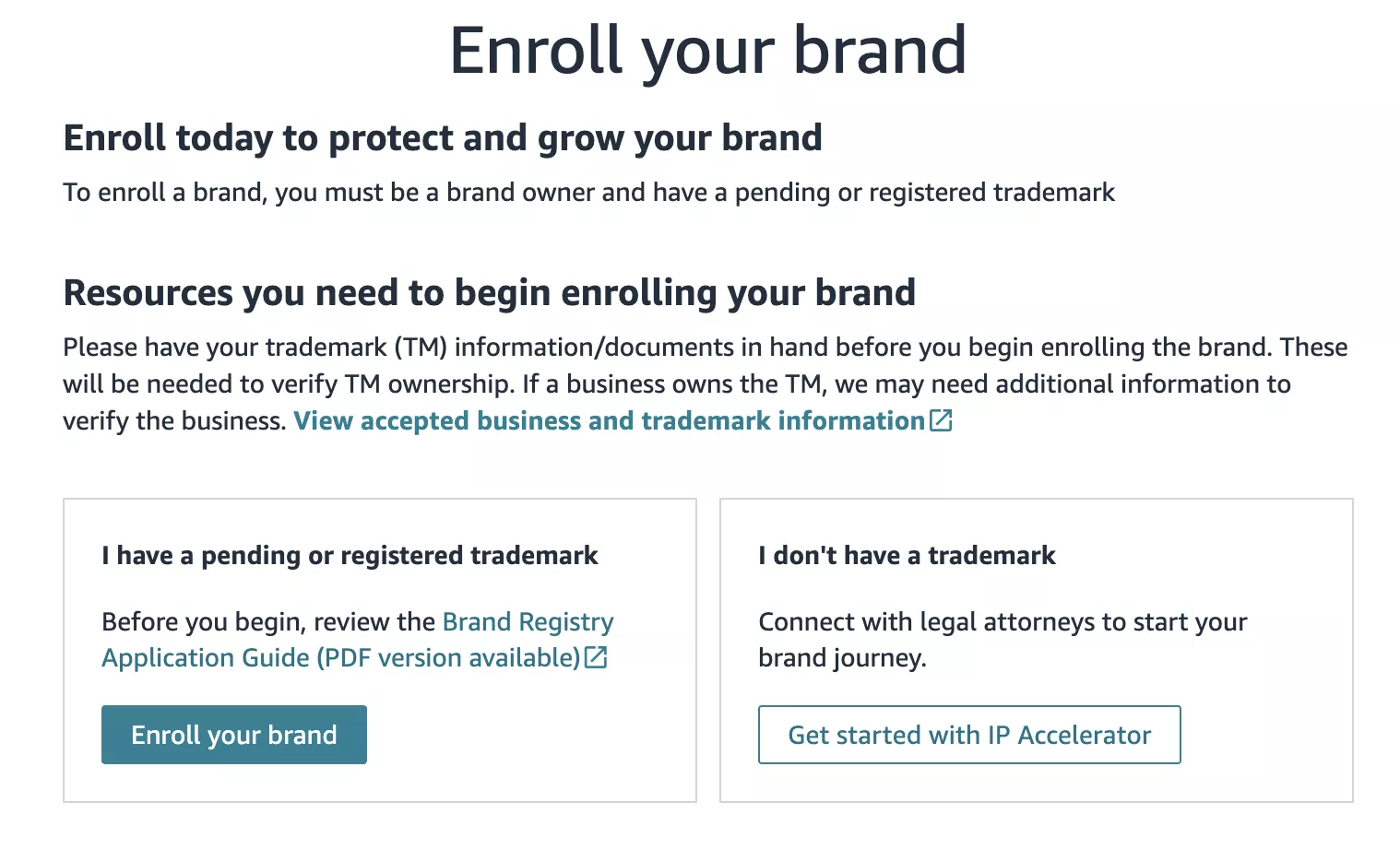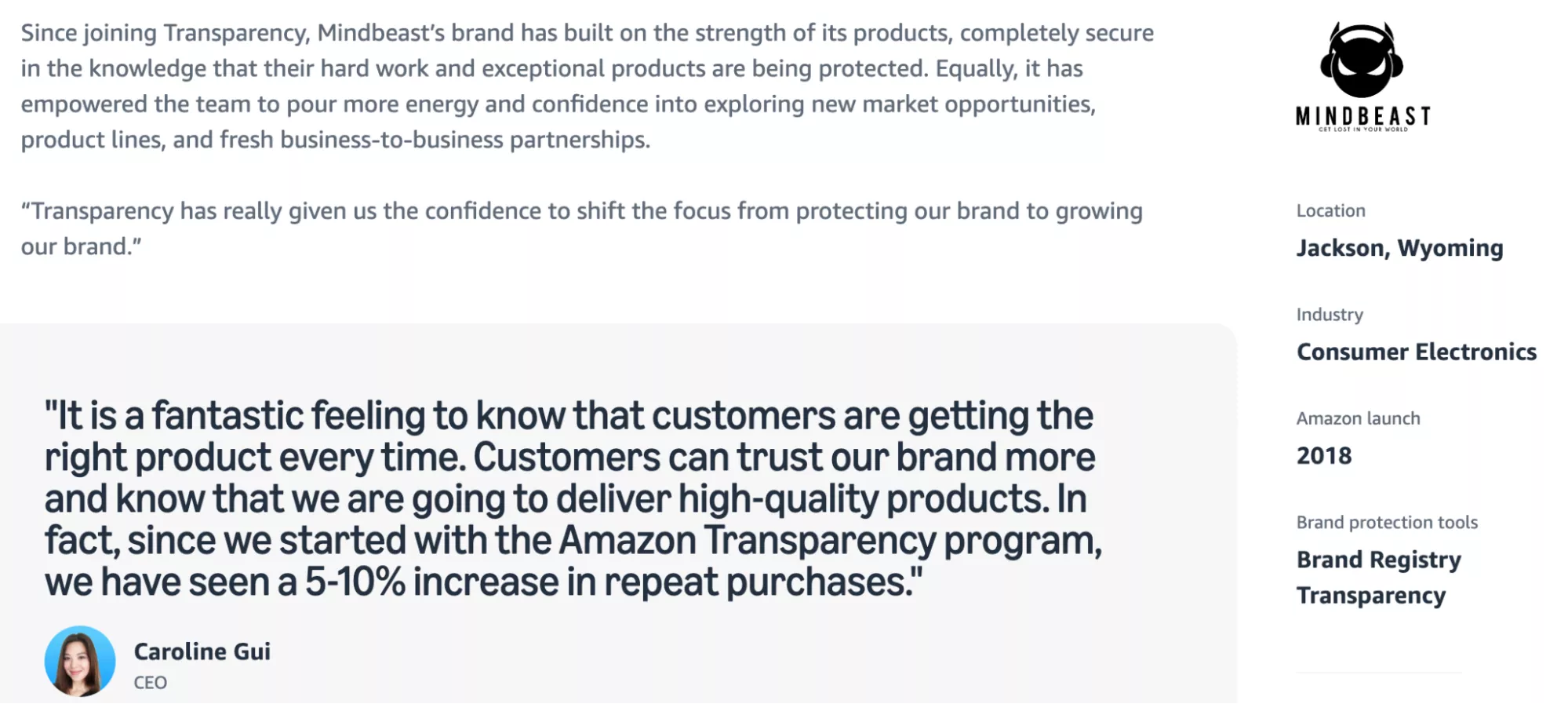How to Protect Your Profit and Reputation With Amazon Brand Gating (and Stop Counterfeits)
Picture this: You’ve spent years building your brand, perfecting your products and cultivating customer trust. Then one day, you discover someone is selling knockoff versions of your $1,000 designer dresses for $40 on Amazon. Your phone starts ringing with angry customers, your brand reputation takes a nosedive and you’re left wondering how to stop this digital free-for-all.
Welcome to the wild west of e-commerce — where Amazon brand gating becomes your sheriff’s badge. Amazon brand gating is more than just a fancy term; it’s your digital fortress against counterfeit sellers and unauthorized resellers who treat your brand like a garage sale.
What Is Amazon Brand Gating? (Your Digital Bouncer)
Amazon brand gating is a digital barrier system within Amazon’s Brand Registry program that restricts who can sell specific products on the platform. Think of it as a VIP rope at an exclusive club, except instead of keeping out people wearing flip-flops, it keeps out unauthorized sellers peddling inferior versions of your products.
This powerful tool allows brand owners to maintain approval authority over who gets to sell their products. Once your brand is registered through trademark protection and other brand assets, you gain access to Amazon Brand Registry tools that put you in the driver’s seat.
Why Brand Gating Is Your Business Lifeline
The Nightmare Scenarios Keeping CEOs Awake
Brand dilution and counterfeit products represent two of the most insidious threats to modern businesses. When unauthorized third-party sellers flood your product listings with inferior alternatives, several devastating problems emerge:
Revenue Bloodbath: Unauthorized sellers engage in race-to-the-bottom pricing, forcing your authorized retailers to slash prices or lose sales entirely.
Reputation Apocalypse: Nothing destroys customer trust faster than receiving a subpar product they thought was from your brand. Poor-quality counterfeits create negative reviews and customer service nightmares.
Channel Chaos: Without proper gating, you lose control over how your products are presented, priced and sold.
“If you care about your customers, you have to have additional digital protection.”
Aliaksandr Vlasenka, Head of Marketplace Growth Department at Netpeak Agency
How Amazon Brand Gating Works (The Science Behind the Shield)
Amazon brand gating operates through a systematic approval process with multiple checkpoints. The system begins with Amazon Brand Registry, then brand owners submit requests to gate specific ASINs with justification for protection.
Amazon’s approval process requires sellers to prove legitimacy through recent invoices, manufacturer relationships and strict reseller agreements. For enhanced protection, Amazon’s Transparency Program uses unique serial codes ensuring every shipped item is authentic.
Why You Desperately Need Brand Gating
Stop the Counterfeit Invasion
Consider this real nightmare: A luxury brand selling $1,000 dresses watched helplessly as a bankrupt partner’s inventory got liquidated for $40 each on Amazon. The brand owner’s reaction? Tears. This perfectly illustrates why proactive protection isn’t optional.
Protect Your Brand’s Soul
Your brand isn’t just a logo — it’s a promise. When unauthorized sellers dilute that promise, they’re stealing your brand equity. Gating maintains the premium positioning you’ve worked to establish.
Multiply Your Amazon Sales
Brand gating actually increases sales for legitimate sellers. By eliminating price wars and maintaining proper presentation, gated products see higher conversion rates and increased profit margins.
Your Brand Gating Battle Plan (Step-by-Step Domination)
Step 1: Build Your Foundation
Establish proper brand registration with trademarks filed and legitimate business presence (website, proof of company existence).
Step 2: Conquer Amazon Brand Registry
Submit your brand information for review. Amazon verifies your legitimacy before granting access to protection tools.
Step 3: Launch Your Gating Assault
Compile ASINs you want gated with detailed justification. Make compelling cases for each product.
Step 4: Monitor Your Empire
Continuously watch your gated listings and address unauthorized selling attempts.
The Profit-Boosting Benefits That Matter
Increased Profit Margins: Eliminate price wars between unauthorized sellers
Enhanced Brand Control: Manage presentation, pricing and sales consistently
Improved Customer Trust: Higher conversion rates from authentic product confidence
Reduced Service Burden: Fewer counterfeits mean fewer complaints and returns
Strategic Channel Management: Work exclusively with aligned partners
Verify Your ASIN’s Gating Status (Know Your Battlefield)
Amazon Brand Registry provides clear tools to check gating status, eliminating guesswork for both brand owners and potential sellers planning inventory strategies.
How Gating Crushes (and Helps) Third-Party Sellers
The Good News for Authorized Sellers
Gating creates controlled competitive environments instead of chaotic free-for-alls against questionable sellers.
The Harsh Reality for Others
Entry barriers can be cost-prohibitive. Third-party resellers may pay non-refundable fees up to $1,500 per brand for qualification.
Breaking Through the Gates
Legitimate sellers can access gated products by:
- Obtaining explicit brand owner permission
- Providing recent invoices (under 90 days)
- Meeting strict reseller requirements
- Demonstrating proper credentials
The Controversy You Should Know About
Critics argue gating creates unfair advantages for large brands while limiting small seller competition. However, the system protects legitimate businesses from bad actors who use black hat tactics — and Amazon cracks down hard on rule breakers.
Who Gets the Keys to the Kingdom?
Brand gating is available to brand owners with active Amazon Brand Registry accounts. These brands can share permission with authorized sellers, creating controlled distribution networks.
The Real Cost of Protection (Spoiler: It’s Worth It)
Amazon Brand Gating itself is free through Brand Registry. Associated costs include:
- Trademark registration fees
- Potential brand qualification fees (up to $1,500 for third-party sellers)
- Administrative management costs
Power Tools for Maximum Protection
Beyond basic gating, Amazon offers:
- Transparency Program: Serial code verification
- Project Zero: Advanced counterfeit detection
- Brand Analytics: Performance monitoring insights
- Amazon Advertising: Enhanced visibility for authorized listings
Pro Insider Secrets for Gating Success
Start Early: Implement gating before problems arise — prevention beats reaction
Document Everything: Maintain detailed brand asset records for faster approvals
Monitor Relentlessly: Brand protection requires constant vigilance
Partner with Experts: Work with marketplace specialists who understand Amazon’s systems
Integrate Strategically: Combine gating with comprehensive Amazon advertising and reputation management
Your Brand’s Digital Fortress Awaits
Amazon brand gating represents a fundamental shift in marketplace brand protection. It’s about maintaining brand integrity, customer trust and profit margins that fuel long-term success.
The system creates challenges for some sellers, but for brand owners who’ve invested in building something valuable, gating provides essential protection against marketplace chaos. As e-commerce evolves, brands implementing these systems early will thrive in increasingly competitive digital landscapes.
Remember: Your brand is your most valuable asset. Protect it accordingly. The experts at Netpeak can help.
FAQ
What is brand gating on Amazon? Brand gating on Amazon is a digital barrier requiring seller approval from brand owners before listing specific products, preventing unauthorized sales and counterfeit products.
How to gate your brand on Amazon? Register with Amazon Brand Registry, then submit ASIN gating requests with protection justification. This requires proving brand ownership through trademarks and documentation.
What does gated mean on Amazon? Gated products need special approval to list and sell. Sellers must prove legitimacy through invoices, manufacturer relationships and verification requirements.
Can you sell branded products on Amazon? Yes, but gated branded products require explicit brand owner permission. Sellers need proper documentation and approval to sell protected brand items.
Related Articles
Display Advertising Effectiveness Analysis: A Comprehensive Approach to Measuring Its Impact
In this article, I will explain why you shouldn’t underestimate display advertising and how to analyze its impact using Google Analytics 4
Generative Engine Optimization: What Businesses Get From Ranking in SearchGPT
Companies that master SearchGPT SEO and generative engine optimization will capture high-intent traffic from users seeking direct, authoritative answers
From Generic to Iconic: 100 Statistics on Amazon Marketing for Fashion Brands
While traditional fashion retailers were still figuring out e-commerce, one company quietly revolutionized how U.S. consumers shop for everything from workout gear to wedding dresses







